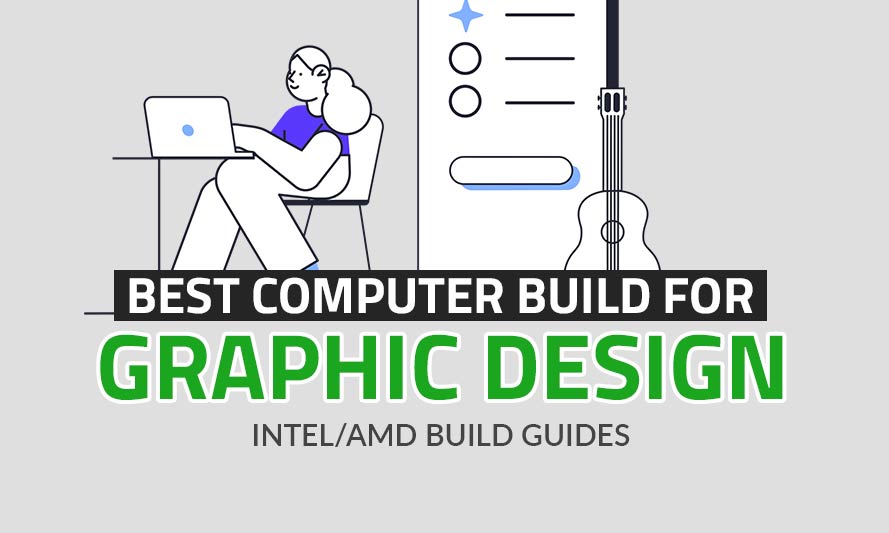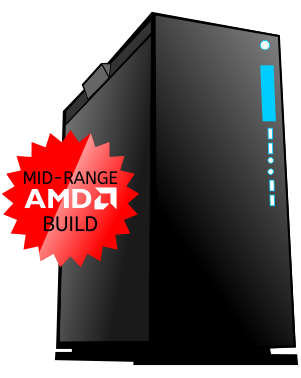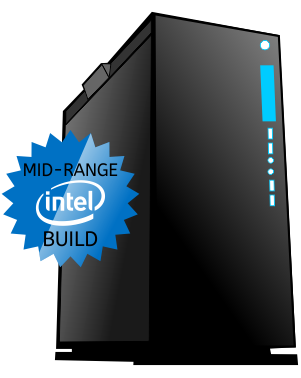Are you a graphic designer and are looking to set up the best computer configuration for graphic design? Here’s the most comprehensive guide for the best computer build for graphic design you’ll ever read. So hang on. You’ll also learn how to put your PC components together, and a bunch of recommendations for graphic design software. If you scroll down further, you’ll get to read my story on my first Graphic Design Computer build.
You’ll find below our recommendations for the different build options including the budget, mid-range, and high-end builds for graphic design.
- Categories of Graphic Design PC Builds
- AMD Graphic Design PC Builds
- Intel Graphic Design PC Builds
- My Graphic Design PC Build (Still kicking as of today)
- What level of configuration do you need for a Graphic Design Computer?
- Why you need to invest in the best Computer Build for Graphic Design
- Best Software for Graphic Design
- Most important components for Graphic Design PC
- Conclusion

RELATED ARTICLE

Best 4K Video Editing PC Build – Full Guide
We take you through our best guide yet on the best 4K Editing PC build for all budgets.
Categories of Graphic Design PC Builds
See the tables below for lists of components for each category of budget, per platform. Once again, please note that we may receive a small commission, at no extra cost to you, for qualifying purchases made through affiliate links on this page. This is to support the work we are doing.
AMD Graphic Design PC Builds
- CPU: AMD Ryzen 5 5600G
- CPU Cooler (Bundled with CPU: Wraith Stealth
- Motherboard: GIGABYTE B550M K
- RAM: Corsair Vengeance LPX 16GB
- Storage: Western Digital 500GB WD Blue SN5000 NVMe
- PSU: AGV Series 500W Power Supply 80+ Bronze
- Case: Cooler Master MasterBox Q300L Micro-ATX Tower
- Display: Sceptre 24-inch Professional Thin Monitor
1080p workspace, basic multitasking, light effects, entry-level projects
RELATED ARTICLE
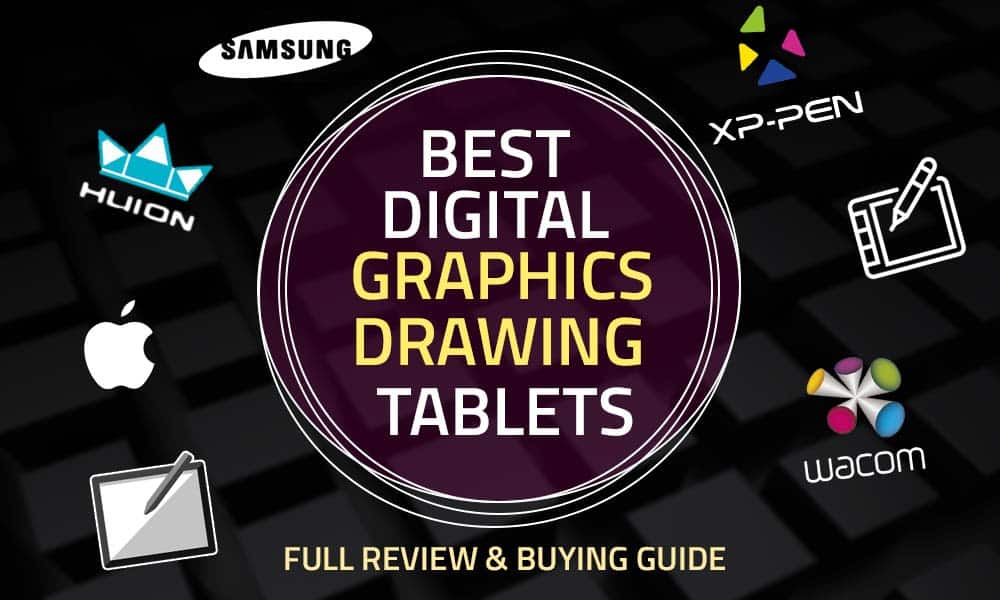
Best Digital Graphics Drawing Tablets
Here are the best drawing tablets for artists and graphic designers. Buying guide included.
- CPU: AMD Ryzen 5 7600X
- Motherboard: ASUS TUF Gaming B650-PLUS WiFi
- CPU Cooler: Thermalright Peerless Assassin 120 SE CPU Cooler
- GPU: Gigabyte Radeon RX 7600 XT
- RAM: Patriot Viper Venom DDR5 RAM 32GB
- Storage (OS/Apps): Silicon Power 1TB UD90 NVMe
- Storage (Media/User Files): Silicon Power 4TB UD90 NVMe
- PSU: be quiet! 80 Plus® Gold Pure Power 650W
- Case: Fractal Design Meshify C
1440p workspace, heavier multitasking, complex Illustrator/Photoshop work, some video editing
RELATED ARTICLE
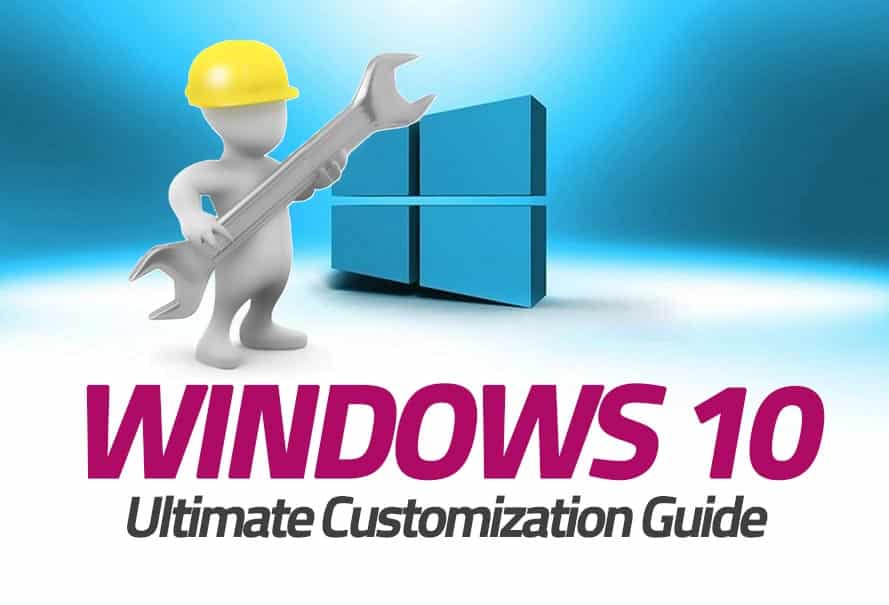
Clean up/Supercharge your Computer
This guide shows you how to increase the performance of your PC by up to 40%
- CPU: AMD Ryzen 9 7950X3D
- Motherboard: ASUS ProArt X670E Creator WiFi
- CPU Cooler: Arctic Liquid Freezer III Pro 360
- GPU: PNY GeForce RTX 4070 Super
- RAM: Klevv Cras V RGB DDR5 64GB
- Storage (OS/Apps): WD_BLACK 2TB SN850P NVMe
- Storage (Media/User Files): Sabrent 8TB Rocket 4 Plus NVMe
- PSU: ASUS ROG Strix 850 Fully Modular 80 Plus Gold
- Case: Fractal Design North Charcoal Black Tempered Glass Dark
RELATED ARTICLE

Build a Music Production PC – Full Guide
Want to set up a home music studio, here’s our guide on building a PC for Music production…
Intel Graphic Design PC Builds
- CPU: Intel Core i3 13100F
- CPU Cooler (Included in CPU package): Intel Laminar RM1
- Motherboard: MSI Pro H610M-G
- RAM: Corsair Vengeance LPX 16GB
- Storage: Kingston NV3 500GB NVMe SSD
- PSU: EVGA 500 W1 80+ WHITE 500W
- Case: Cooler Master MasterBox Q300L Micro-ATX Tower
1080p workspace, basic multitasking, light effects, entry-level projects
RELATED ARTICLE

Build the Ultimate CAD Workstation PC
If you’re planning on building the ultimate CAD Workstation PC, check out this article for recommendations.
- CPU: Intel Core i5 13600K
- CPU Cooler: Thermalright Peerless Assassin 120 SE CPU Cooler
- Motherboard: ASUS Prime B660-PLUS D4
- GPU: ASRock Intel ARC A750 Challenger D
- RAM: Gigastone Game PRO 32GB
- Storage (OS/Apps): Western Digital WD_BLACK 1TB SN770
- Storage (Media/User Files): WD_BLACK 4TB SN850P NVMe
- PSU: Corsair RM650e Fully Modular ATX Power Supply
- Case: Fractal Design Meshify C
RELATED ARTICLE

BUILD A PC FOR SMALL OFFICE/HOME OFFICE USE
This guide shows you all you need for an Office PC build. Recommendations included.
- CPU: Intel Core i7 14700K
- CPU Cooler: Lian Li Galahad II Trinity 360mm
- Motherboard: ASUS ROG Strix Z790-F Gaming WiFi
- RAM: G.Skill Trident Z5 Neo RGB Series 64GB
- Storage (OS/Apps): Lexar 1TB NM790 PCIe Gen4 NVMe M.2
- Storage (Media/User Files): Sabrent 8TB Rocket 4 Plus NVMe
- PSU: Thermaltake Toughpower GX3 850W 80+ Gold
- Case: Darkrock EC2 Black ATX Mid Tower PC Case
RELATED ARTICLE
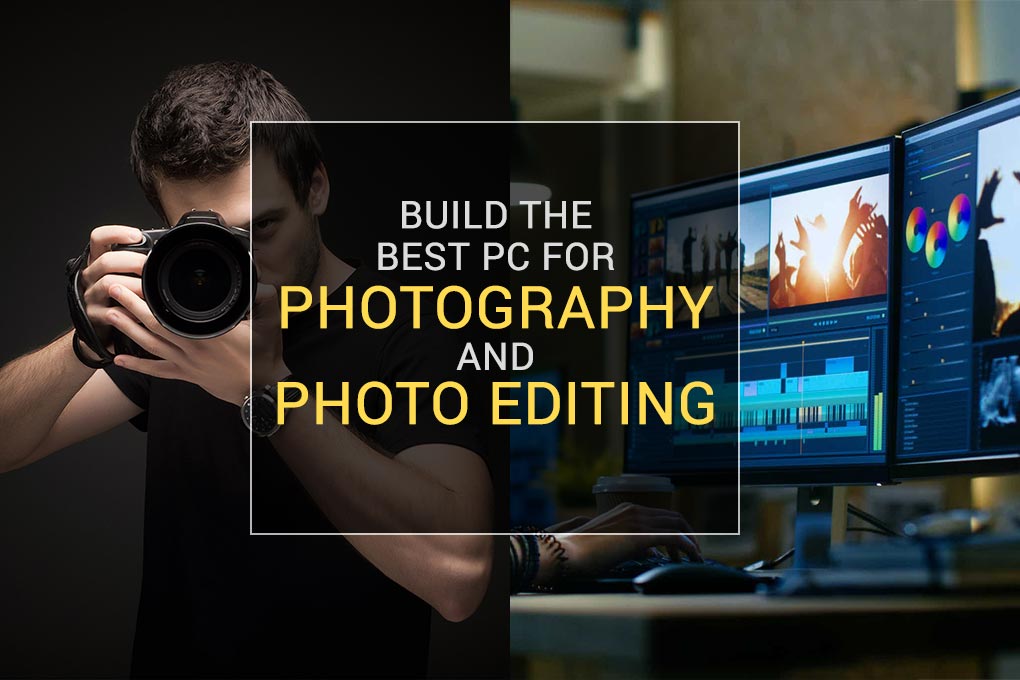
The Best PC Build for Photo Editing & Photography
Check out our comprehensive build guide for Photo Editing and Photography. Equipment recommendations and buying guide included.
My Graphic Design PC Build (Still kicking as of today)
Ok. So here’s my story.
I remember the first time I built my graphic design PC. I wanted to have the best computer configuration for graphic design. It was so exciting because this was the very first time I was buying higher-level components for specialized work – graphic design. I had ordered the components from Amazon, and all had arrived within a week. I remember losing sleep because of the sheer excitement of building my own PC. By the way, that was in 2013, when Intel released its 4th Generation Core processors.
I had opted for a mid-range budget for my build, and my processor of choice was the Intel Core i5 3570K, paired with the Intel Desktop Media Series DH77KC Motherboard. The RAM was a Komputerbay 16GB of DDR3 memory. Other components include Cooler Master Air cooler and 500Watts Power Supply, the SSD was a Kingston Digital 120GB drive. I also got a Barracuda hard drive of 3TB and an Azio gaming keyboard and mouse combo.
I didn’t get a new display, as I had a Samsung Syncmaster 19″ monitor. Also, I used the case from my previous build instead of buying a new chassis. Lest I forget, the graphics card was a Geforce GTX 660 with 2GB GDDR5 graphics memory.
The night I got these components, I couldn’t sleep well because of sheer excitement. I had looked forward to actually building my own PC for a long time. Well, the following day, with a little bit of headache due to sleeplessness, I went to work putting the components together.
My build went stress-free, though. The only issue I had was the motherboard; with my limited budget, I could only afford the cheap Intel Media series motherboard. I found out later it doesn’t support overclocking. I really wanted to overclock the Core i5 3570K, which is the main reason I bought the processor. Otherwise, I would have gone with the 3570 Core i5, or something i7’ish. Here are the photos from back then…


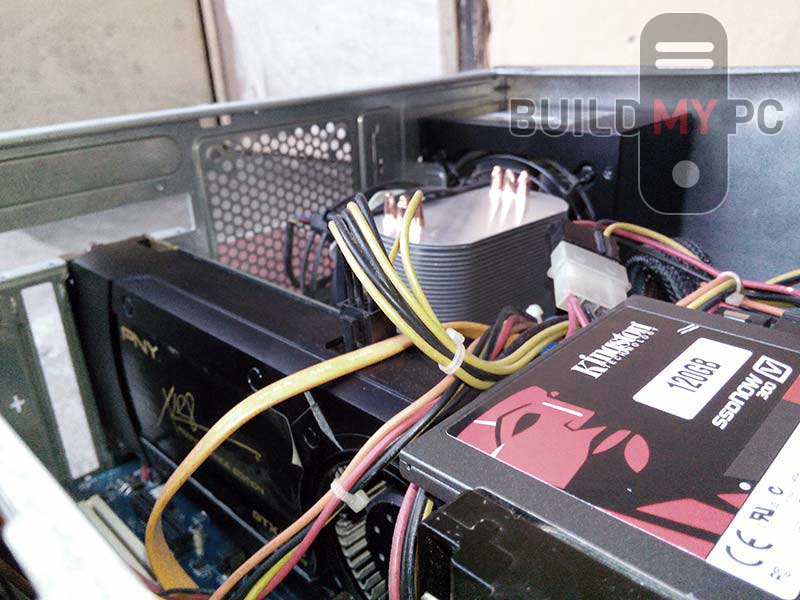



Well, as a matter of fact, that PC build is still kicking ass today. I use it mainly for graphic design and Video Editing, though it struggles at 4K Video editing. I’m using it right now, editing this article.
One of my motivations for starting this site is to help you to get the best components for the best prices available. I don’t want you to make the same mistake I made, matching a non-overclockable motherboard with an overclockable processor. And, as a matter of fact, this motivation doesn’t just apply to this article, but to all the build guides on this website. You can definitely trust these guides.
What level of configuration do you need for a Graphic Design Computer?
Since Adobe Pagemaker debuted on the Mac years ago, desktop publishing introduced a whole new industry, and there began to be a huge demand for graphic designers. Graphic design involves producing graphics for print and the web.
Your graphic design PC must be able to handle the design workflow. If you are a beginner just starting out, your budget may or may not be a problem. Usually, beginners have a low budget to play with. But you have to make sure your processor is at least a quad-core processor. The recent AMD processors are a good choice for budget builds. They are a combination of lower prices and great performance, compared to their Intel counterparts.
Continue reading for our recommendations on the list of hardware you can get for the best computer build for graphic design.
If you are already established in the design business, then you might want to go for higher-specced configurations. We are talking about NVMe SSDs, six-core to eight-core processors, and large hard drives in the region of 8TB. Why is this so? This is because if you are handling Adobe Photoshop files, you are going to need a large storage drive because the file sizes are usually huge.
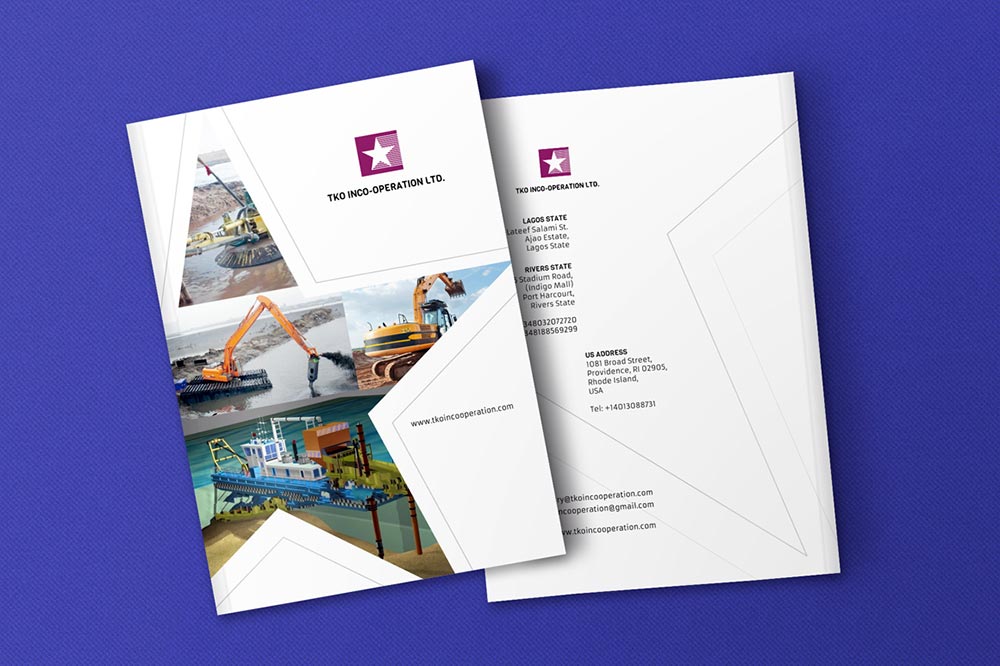
Why you need to invest in the best Computer Build for Graphic Design
As far as graphic design is concerned, time is money. You don’t want your computer to run slower, due to mismatched hardware. Let’s say you need to open a 2GB Adobe Photoshop file and your storage drive is a 5,400rpm mechanical hard drive.
This file operation can last up to 1.5 minutes, compared to just about 30 seconds on a fast SSD or even 10 seconds on an NVMe SSD. The net result is that you get to make more money because your work/time ratio is drastically reduced. In addition, you’ll save up on energy bills because you can achieve more in less time.
What about bottlenecking? Bottlenecking on a computer happens when a low-specced component is paired with higher-specced ones. The end result is that your graphic design workflow is slowed down. For instance, if you pair a high-end processor with an old mechanical hard drive, you will not achieve the best performance.
This is because the processor is processing data at a very fast rate, and it has to wait for the hard drive to process the data at a much slower rate. Our selected components have been cross-checked for compatibility issues, and we try to address this issue by selecting only compatible components. Your PC for graphic design must be able to run your creative apps without lag, no matter the size or complexity of the file you’re working on.
RELATED ARTICLE
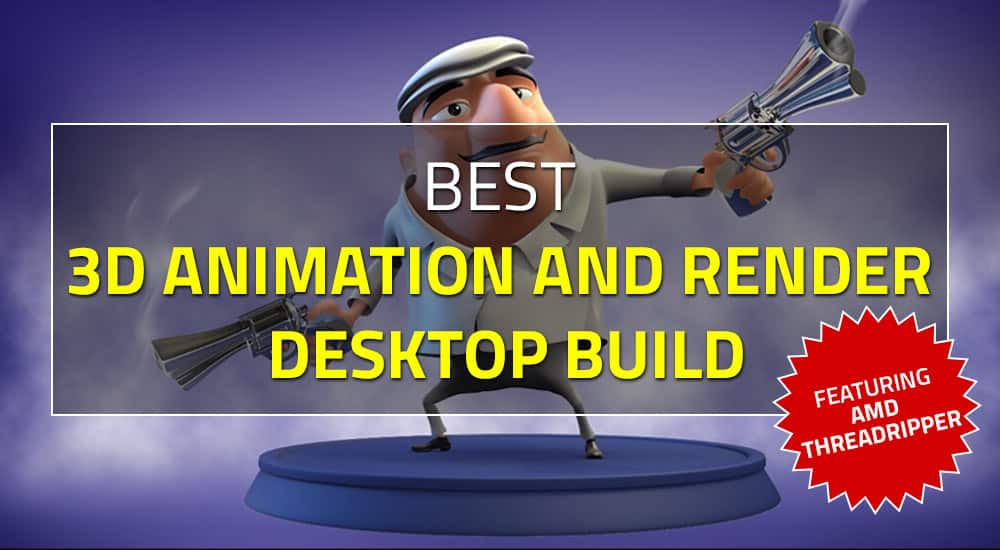
Best 3D Animation and Render Desktop PC Build – Full Guide
This guide features the indomitable AMD Threadripper CPU. Build a kick-ass render PC
Best Software for Graphic Design
If you are a beginner graphic designer and you need to get software that can handle your graphics and print jobs, here is a list of popular free and paid apps to take a pick from.
Adobe Photoshop

Undoubtedly the king of graphics, Adobe Photoshop is a software developed and published by Adobe Systems Incorporated. Adobe has its Headquarters in the US. Adobe Photoshop is a computer software package, designed primarily for photo editing. Over the years, however, Photoshop has grown to become many things to many professionals, including graphic designers.
Photoshop is capable of the following:
- Photo and image manipulation
- Graphic Design
- Web graphics
- Texturing for 3D applications such as 3D Studio Max, Maya, etc
- Creation of content for Mobile Devices such as Phones and PDA’s
- Creation of graphical interactive menu elements for DVD’s
- Can be used to edit video frame by frame
Photoshop started its life in 1990 as a Macintosh-only application and continues to be developed to this day. Support for the Windows platform was added in 1993. The application was initially developed by Thomas and John Knoll. Thomas was a programmer, while John was in charge of special effects for Industrial Light & Magic (ILM) on the first Star Wars film. Photoshop is here today because John asked Thomas to develop software to add effects and painting tools to images used in George Lucas’ epic.
Since 1990 when the first version of Photoshop was released (Adobe Photoshop 1.0), Adobe
has been offering more and more features in subsequent releases, the latest installment being Adobe Photoshop CC 2019 (released October 2018).
Adobe Photoshop is basically an image editing application. It is bitmap-based – meaning that it is designed to manipulate bitmaps (bitmaps are a computer representation of images using tiny colored dots known as pixels).
Photoshop has strong ties with other Adobe software for media editing, animation, and authoring. Files in Photoshop’s native format, .psd, can be exported to and from Adobe Illustrator, Adobe Premiere Pro, After Effects, and Adobe Encore to make professional standard DVDs and provide non-linear editing and special effects services, such as backgrounds, textures, and so on, for television, film, and the Web.
For example, Photoshop CS broadly supports making menus and buttons for DVDs. For .psd files exported as a menu or button, it only needs to have layers, nested in layer sets with a cueing format, and Adobe Encore DVD reads them as buttons or menus.
Photoshop is a pixel-based image editor, unlike Adobe Illustrator, which is a vector-based drawing application.
In addition, Photoshop can utilize the color models RGB, Lab, CMYK, Grayscale, Binary Bitmap, and Duotone. Photoshop has the ability to read and write raster and vector image formats such as .eps, .png, .gif, .jpeg, and .pict.
It also has several native file formats such as:
- The .psd (Photoshop Document) format stores an image with support for most imaging options available in Photoshop. These include layers with masks, color spaces, ICC profiles, transparency, text, alpha channels and spot colors, clipping paths, and duotone settings.
This is in contrast to many other file formats (e.g. .eps or .gif) that restrict content to provide streamlined, predictable functionality. Photoshop’s popularity means
that the .psd format is widely used, and it is supported to some extent by most competing software. - The .psb (Large Document Format) format is a newer version of .PSD designed for files over 2 gigabytes.
- The .pdd (PhotoDeluxe Document) format is a version of .PSD that only supports the features found in the discontinued PhotoDeluxe software. The “CS” stands for Creative Suite and was introduced with Photoshop 8, a new concept Adobe introduced to enable the integration of their software products.
You can download a fully usable demo of the software from the Adobe website here but be reminded that the demo works for 30 days after which you’ll be required to activate it to be able to continue using the software.
The Workspace is highly customizable; you can easily rearrange the tools and palettes to your preference. The cool thing about the interface is that you can actually save your current settings as a Workspace file.
This helps a lot when you set up a new system or reload your operating system, and you don’t have to bother about setting up your copy of Photoshop the way you want. The workspace file saves all your palette locations, keyboard shortcuts, tool settings, and application preferences.
Adobe Photoshop has full support for graphics tablets, which allows you to draw intuitively using a graphics tablet. Conclusively, Adobe Photoshop is a great choice for graphic designers, though the only downside is the monthly subscription-only purchase plan. Many designers, especially beginners may not find it pocket-friendly.
CorelDraw Graphics Suite 2020

CorelDraw is another alternative when it comes to graphic design apps for Windows. CorelDraw has grown to become a worthy alternative to Adobe Illustrator and Indesign. Since CorelDraw version 1.0, the app has come a long way up to the present version CorelDraw 2020.
CorelDraw is a vector graphics application. It handles computer graphics using vector representation made up of lines and shapes using mathematical procedurals for generating these objects. This vector approach ensures that the objects are not subject to loss of quality in their native format.
The software supports various file formats including vector and bitmap formats. It also supports the import of a host of file formats. With CorelDraw, you can create just about any type of graphics, whether for print or for the web. Print formats range from IDs to large format documents measuring several meters in dimension.
CorelDraw also supports multi-page layouts for magazines and book publications. Graphic designers will definitely love CorelDraw, that is if you’re not pitching for the Adobe camp. The current version of CorelDraw has the regular and student version. By the way, the Student Version is much less cheap.
Corel Photo-Paint is bundled with CorelDraw and is useful for editing your photos. CorelDraw is a total package for graphic designers and illustrators alike. Click the links below to get CorelDraw.
Adobe In-Design
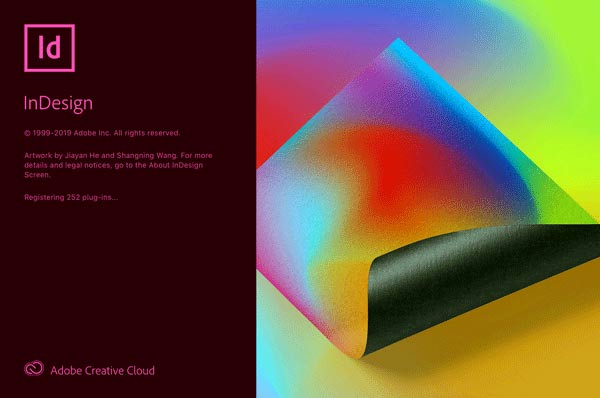
Still a part of the Adobe suite of subscription apps, InDesign has maintained its status as a capable and solid vector design application that graphic designers continue to find useful. Its capabilities range from its superb automation abilities and a huge library of professional fonts, any serious designer should use In-Design.
The only downside is the higher subscription cost, otherwise, it’s a must-have. Click the button to download a copy.
Adobe Illustrator

Adobe Illustrator is a sibling to Adobe Photoshop software. Illustrator was designed with digital artists and illustrators in mind. The software is loaded with a host of features for creating just about any design format on the computer. Illustrator’s drawing toolkit is second-to-none, featuring support for graphics tablets. With Illustrator, you can create any type of drawing easily.
The software supports a host of file formats for import and export purposes. One chief consideration is that your computer should have lots of RAM, preferably 16GB DDR4. This is because Illustrator is a RAM-hungry application. You can download a copy of Illustrator.
RELATED ARTICLE

Best Graphics Cards under 100 USD
We review a selection of the best GPUs you can grab for under a hundred. Full review.
Canva

Canva is a great design tool designed to empower just about anyone to achieve decent graphics on either a desktop or a smartphone. The service is web-based, meaning that you need an internet connection to use the app.
Canva offers numerous free templates that will get you up and running quickly on the type of design work you intend to achieve, and it does that beautifully and simply enough.
Apart from that, it also allows you to pay a subscription in order to access premium design templates and assets. However, with the free templates, you can easily customize any type of design and output the image in a few seconds.
The monthly subscription stands at $12.95 per month, but if you just want to use the free templates, here’s the link below.
GIMP

This is a versatile software for graphic design. The best thing about this app is that it is free. Gimp allows you to create graphics and edit your photos. It borrows most of the tools available in Adobe Photoshop.
If you are a beginner constrained by your budget, you should go for GIMP here.
Conclusion
Graphic designers face lots of challenges in the form of tight deadlines and meeting up with client demands. I hope your expectations were met by reading this guide, and you finally get to build a graphic design PC you can be proud of. If there is something I missed, kindly let me know in the comments section and I’ll add it to help others. Meanwhile, you can check our reviews here, and other build guides for custom PCs.
If you like this article, don’t forget to drop me a line to let me know. It keeps my morale kicking and motivates me to keep publishing these guides. Thanks for reading.


